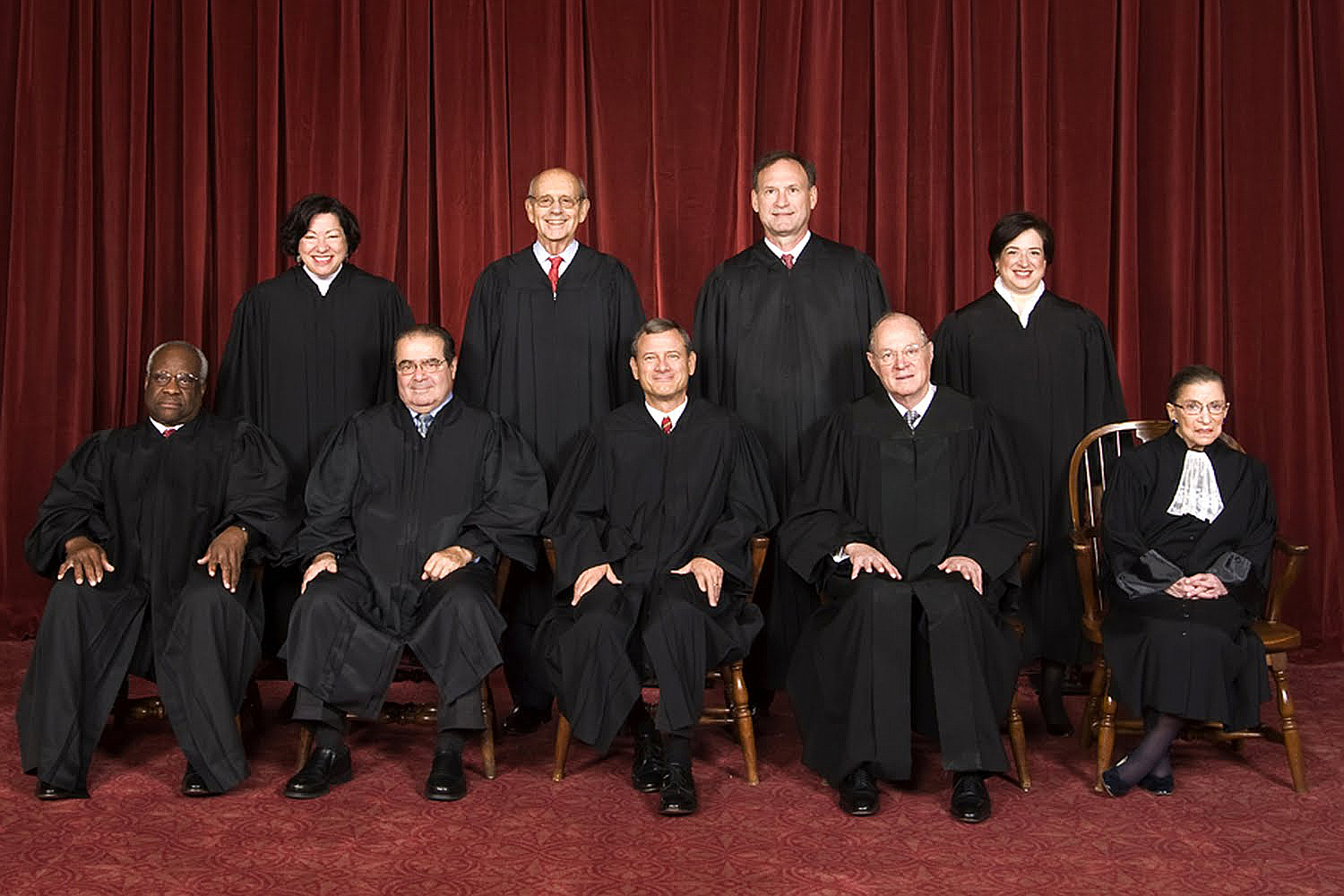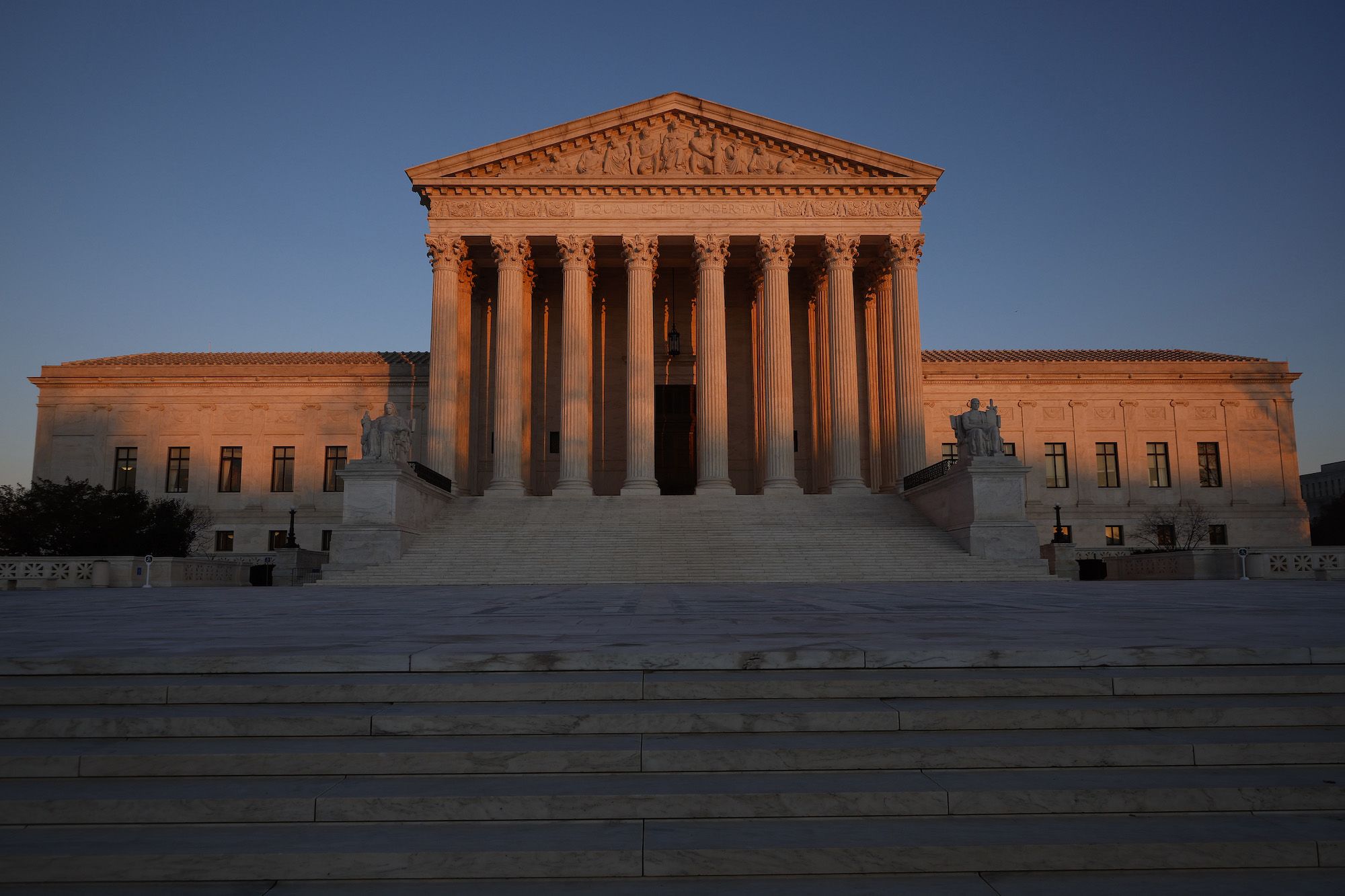By Kalvis Golde
Life tenure for federal judges is a staple of the U.S. judicial system – so much so, in fact, that most of us never stop to consider the possibility of citizens voting out high judges when they disagree with their decisions. Republican Senator and presidential candidate Ted Cruz, however, wants to make all federal judgeships elected offices, including those of the Supreme Court.
This summer, Cruz announced his plan to implement retention elections and term limits for Supreme Court justices, giving voters the power to decide whether a given judge will keep his or her seat. Cruz feels the Supreme Court has “crossed a line” by deciding cases based on their own political agendas, such as legalizing gay marriage in Obergefell v. Hodges and upholding Obamacare in King v. Burwell. “So long as justices on the Court insist on behaving like politicians … they should not expect to be exempt from the authority of voters who disagree with their policy decisions,” Cruz said.
Justices in most cases that Cruz cites ruled against his own political leanings, which leads some to dismiss his proposals as the same type of political maneuvering that he is criticizing. However, the debate over electing judges is larger than Cruz and very real. A deep divide exists between those who feel that federal judges need protection from popular opinion to make fair decisions and those who feel electoral pressure keeps judges honest. This issue has been debated time after time, but surprisingly, one of the strongest cases for a popular check on the courts was made by a sitting judge.
In the 1825 case Eakin v. Raub, Judge Gibson of the Supreme Court of Pennsylvania strongly denounced a federal court’s power to strike down a law it decides is unconstitutional, otherwise known as the power of judicial review. The Supreme Court exercises judicial review in most of its high profile cases, such as June’s Obergefell ruling that state bans on same-sex marriage are unconstitutional.
Gibson argued that giving federal judges that power makes the judicial branch superior to the other branches of government and that the American voter should should bear this responsibility instead. If a representative enacts a bill that defies the Constitution, Gibson believed that it is the electorate’s responsibility to demand that the representative move to repeal the law or, if the representative is not swayed, vote that representative out in the next election.
Ted Cruz would agree, although not with the solution. Like Gibson he is up in arms over justices’ handling of judicial review, but, unlike in 1825, that power is now a deeply entrenched duty of the judicial branch. Calls for eliminating judicial review today would fall on deaf ears; instead, Cruz thinks that we the people should be able to vote out judges who are abusing that power.
That stance, to many, is dangerous. Life tenure is, arguably, the most important foundation of an independent judicial branch that can check the power of Congress and the president. Specifically, federal judges have tenure to protect them from populist mood swings or being ousted by an executive who dislikes their decisions. Term limits and retention elections would leave judges vulnerable to both.
Ted Cruz is staunchly conservative, and given that his anger is primarily over liberal Supreme Court victories, it is hard to imagine him voting out conservative justices like Samuel Alito or Clarence Thomas. Cruz is also exceedingly qualified, having clerked for Chief Justice William Rehnquist and graduated from Harvard Law School, and so his frustration may well be unbiased. But most of us have much, much less judicial experience. Could we expect ourselves to be less political in deciding a judge’s fate?
Cruz’s argument is a play on an old theme, but presently it is gaining traction. Polls taken after the controversial decisions this summer reveal that a majority of Americans now like the idea of imposing term limits for Supreme Court justices. This may be a temporary mood swing, but if this upcoming Supreme Court term proves to be similarly divisive, we may find that enough voters share Cruz’s anger to carry him through the primary.


